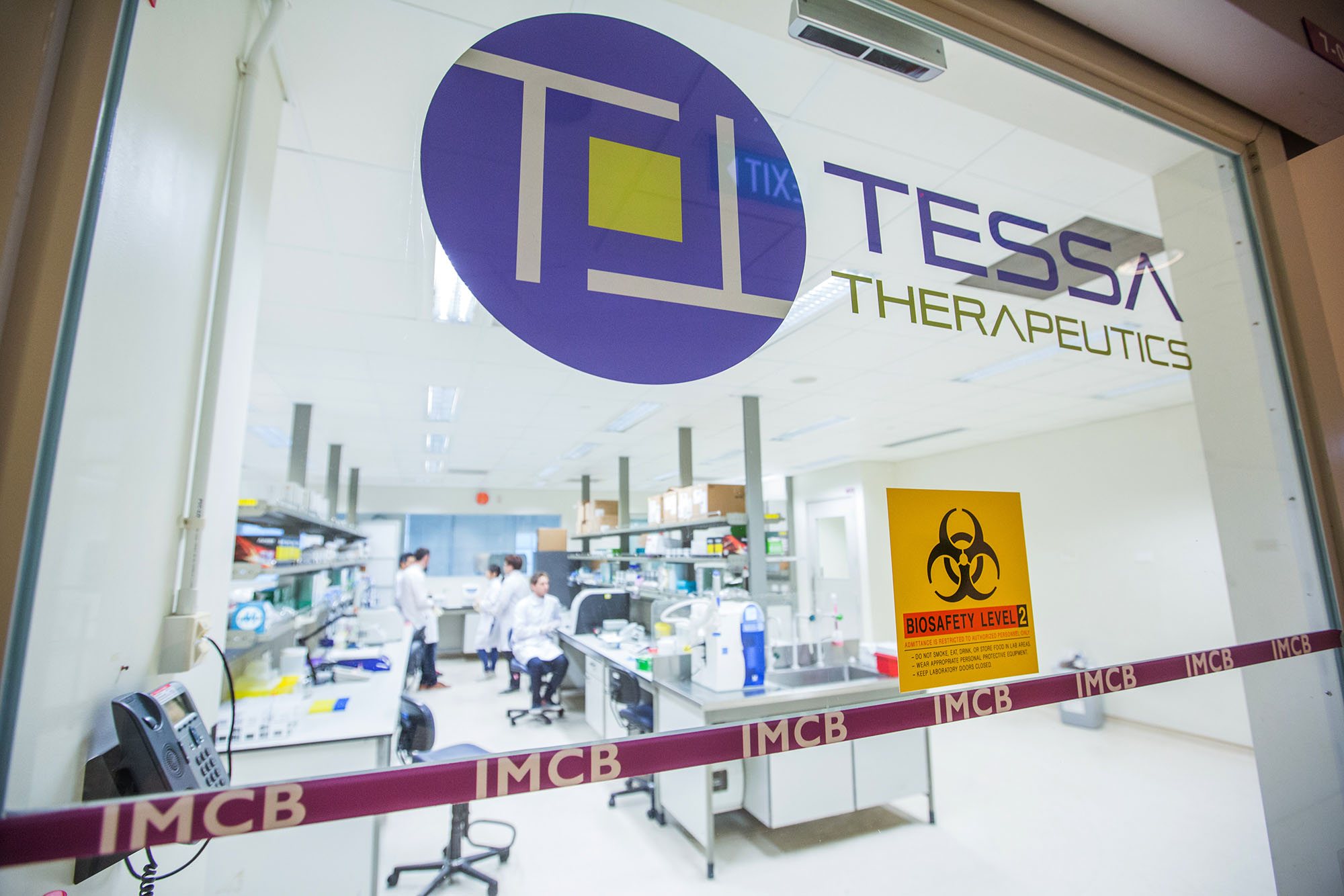



A meeting between an immunologist and an oncologist in a Singapore cafe seven years ago may go down as one pivotal moment in the war on cancer.
Over a coffee that turned into lunch, immunologist John Connolly and oncologist Han Chong Toh spent hours discussing ways to better harness the immune system to hunt down and kill malignant cells. Fast forward to April 2015, when cancer patients began receiving one of their experimental treatments in what their company says is the largest clinical study of its type in the world.
Their first meeting triggered a yearslong partnership leading to Tessa Therapeutics, which is developing novel anti-cancer therapies that rely on turbocharging the body’s cancer-killing immune system. The Singapore-based biotechnology firm has two treatments in patient studies, including one in the final of three stages of trials usually needed for regulatory approval. The company says it is also seeking about $100 million in extra funding later this year.
“While we are still in clinical trials for these treatments, based on the results we have seen so far, we are very excited by their potential to treat cancer,” said Toh, who is Tessa’s chief medical officer and deputy director of Singapore’s National Cancer Centre.
Tessa is looking at various funding options, said Andrew Khoo, Tessa’s chief executive officer. A possible initial public offering over the next 12-to-18 months may value Tessa at “well over” $500 million, based on comparable listed companies worldwide, according to the company.
The Singapore cancer center is one of more than two dozen sites in five countries that will investigate whether Tessa’s treatment, known as TT10, can prolong survival better than conventional therapy in patients with advanced cancer of the nasopharynx — the area behind the nose and above the soft palate — linked to a viral infection.
The medicine works by a taking a sample of the patient’s blood and separating off the infection-fighting T cells, or cytotoxic lymphocytes, that it contains. These are stimulated in the laboratory with specialized cells to produce virus-specific T cells capable of hunting down and destroying cancer cells that express the protein fragments of the virus on the surface of the tumor. These T cells are multiplied in the lab and given back to the patient in the form of an infusion.
While surgery, radiotherapy, chemotherapy and targeted drug therapies have each boosted cancer survival over the past two centuries, immunotherapy is an emerging frontier. Revenue from treatments in this field is increasing about 14 percent a year and will reach $119.4 billion globally by 2021, according to MarketsandMarkets, a research organization in Pune, India.
“The aim of immunotherapy in treating cancer is giving the immune system the ability to counter the cancer’s evasive ploys,” said Asthika Goonewardene, a senior biotech analyst at Bloomberg Intelligence in New York.
While immunotherapy has shown to be highly effective, the downside is that these individualized medicines require a more complicated process to produce than conventional therapies, Goonewardene said. Also, there have been rare, serious cases in which the therapy triggered an overzealous immune response.
“Think of it as nuking the tumor so aggressively, that the gunk causes your body to go into a state of shock,” he said.
The safety profile of Tessa’s virus-specific T cells is one of its “key qualities,” said Connolly, now Tessa’s chief scientific officer. No severe toxicity events were observed in the more than 100 patients who have received the company’s T cell infusion, he said.
“Many immune-based therapies such as checkpoint blockade work by amplifying a patient’s pre-existing immune response against their cancer. But in many cancer patients, the cancer has totally escaped the immune system and so there is nothing left to amplify,” according to Joe Trapani, head of the Cancer Immunology Program at Melbourne’s Peter MacCallum Cancer Centre. It is in such patients that engineered T Cell vaccines can be used to “manufacture” an immune response in the lab, said Trapani, who wasn’t commenting specifically on Tessa.
Worldwide, 330 patients will be recruited for the phase-three trial of TT10, which Tessa anticipates may lead to the first T-cell therapy for a solid tumor approved by the U.S. Food and Drug Administration. In this case, the treatment is directed at cancer cells harboring Epstein-Barr virus, a type of herpes virus responsible for infectious mononucleosis or “kissing disease,” that lingers in certain white blood cells of an infected person for life.
Tessa’s mid-stage study in nasopharyngeal cancer found 63 percent of patients were still alive after two years. That compared with 43 percent receiving a four-drug cocktail of chemotherapy, which was linked with two deaths from meningitis and pneumonia as well as blood complications.



